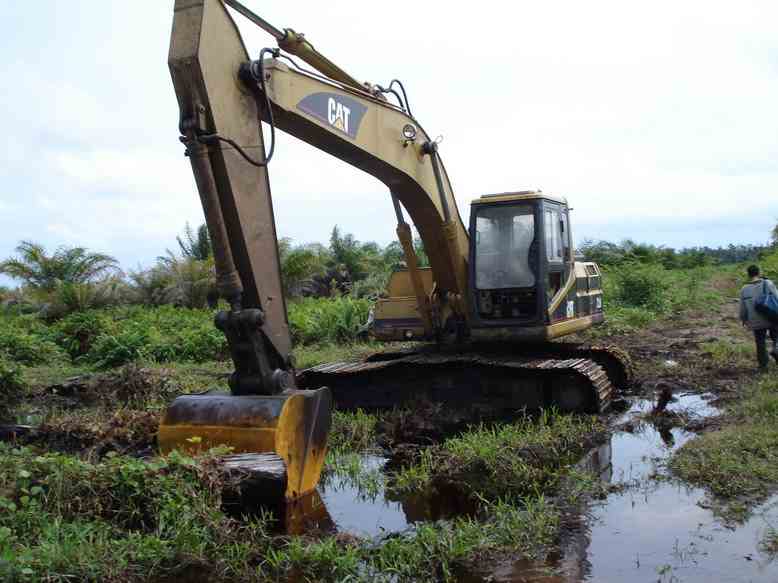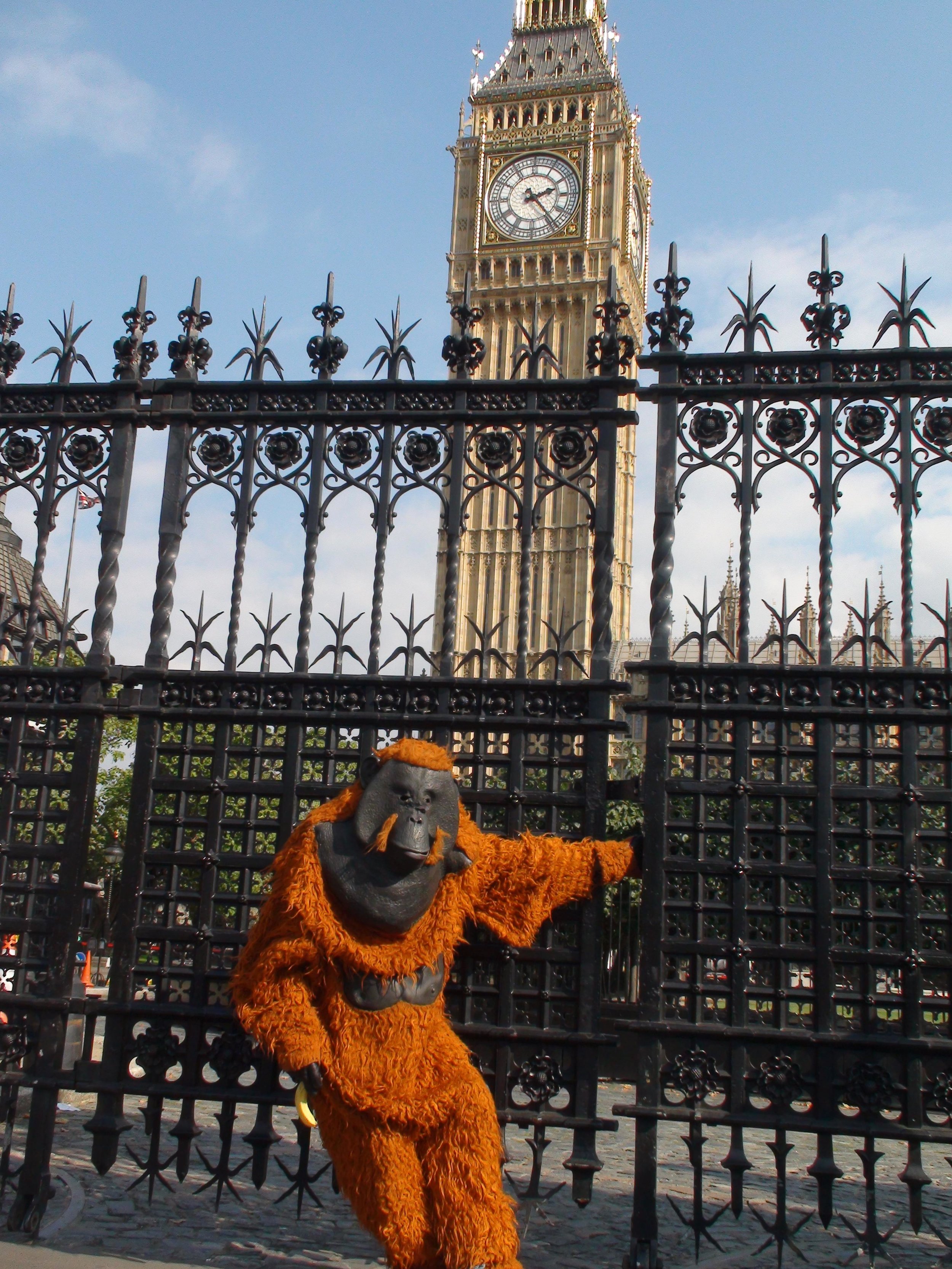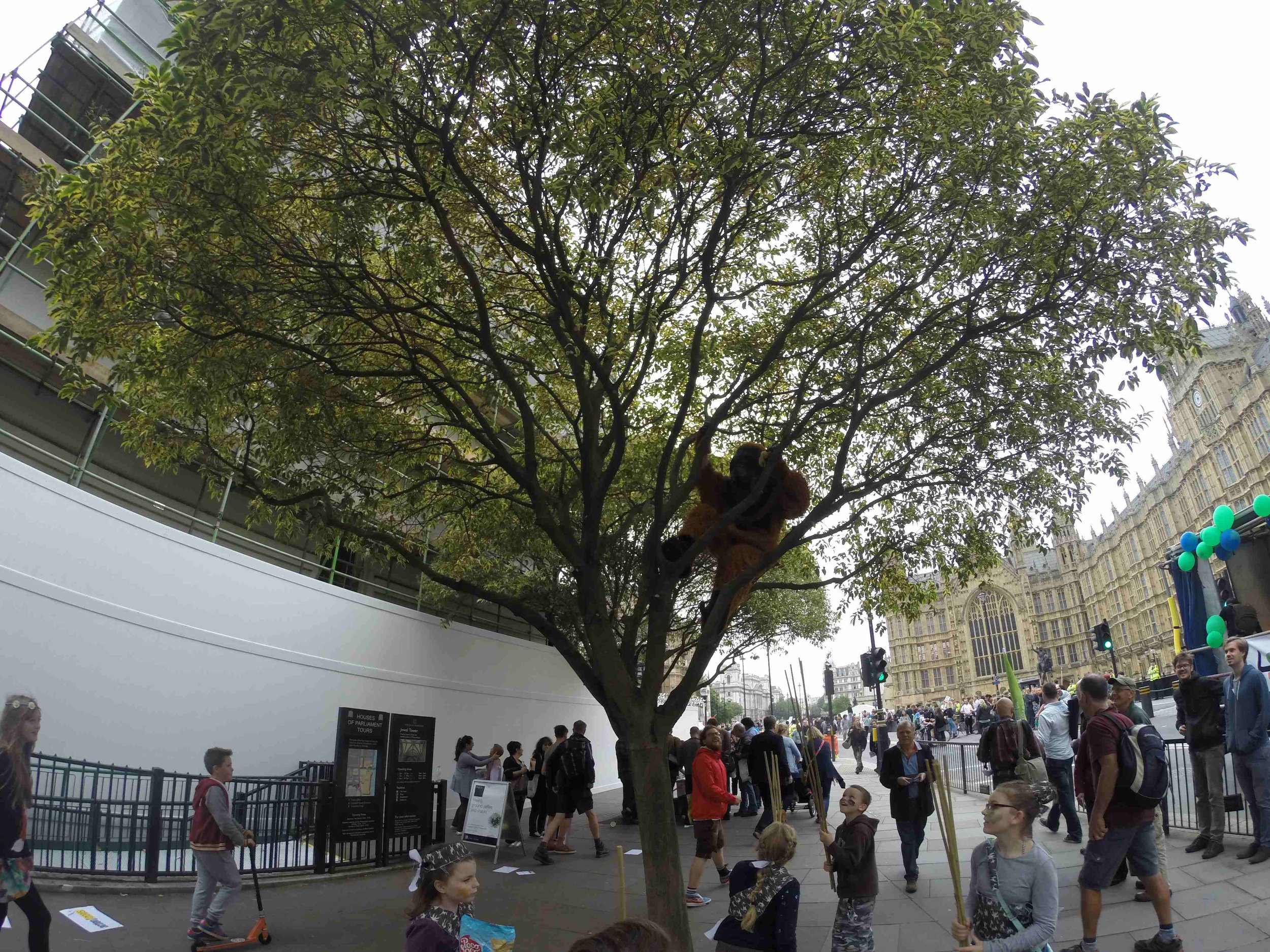Ian Singleton, Sumatran Orangutan Conservation Programme's (SOCP) Director of Conservation, has kindly written todays post for this blog to mark Orangutan Awareness Week 2008.
This last few years we, at the Sumatran Orangutan Conservation Programme (SOCP), have been kept very busy trying to save the Tripa peat swamps on the west coast of Aceh. Our “normal” work tackles all aspects of orangutan conservation (SOCP photo gallery) in Sumatra including:-
1. Confiscation, quarantine and reintroduction of illegal pet orangutans
2. Research, surveys and monitoring of wild populations
3. Education and awareness raising
4. Habitat conservation, especially the Batang Toru Forests of North Sumatra and the remaining peat swamp forests of Aceh’s west coast.
The Tripa swamp forests probably harbored around 1,500 or more orangutans at the beginning of the 1990’s but in the years leading up to the fall of the Suharto government and the escalation of the Aceh separatist conflict much of these forests were allocated as oil palm estates. Some of these estates cleared their land, established drainage canals and even planted oil palms in parts of their concessions, but all were then left abandoned during the conflict between 1999 and 2005, during which time they became overgrown and drainage canals became blocked and stagnant.

Destruction of the Tripa Swamps (photo from SOCP)

Digging Drainage Canals (photo from SOCP)
Over the last year or two, however, some of them have resumed operations, meaning new forest clearance (logging, burning etc), new drainage canals, clearing some of the old oil palms and planting with new ones. Naturally, many of the activities of these estates is not consistent with existing laws. For a start, peat of greater than 3 m depth cannot legally be converted, and much of the area under these estates has been measured by SOCP and found to be up to 5 m deep or more. There is also a moratorium on all logging in Aceh, issued by the Governor in 2007, but implementation of this regulation in the field is still lacking.

Much of the peat due for conversion is more than 5 metres deep and stores huge amounts of carbon. (photo from SOCP)
The destruction of the Tripa peat swamps not only endangers the 250 or so orangutans still surviving there, but also has major implications for climate change and for local communities. The peat swamps store vast amounts of carbon, which will all be released to the atmosphere over the coming years if the clearance and drainage is allowed to continue. Drying of peatlands also results in subsidence of around 1 m in 20 years, extremely worrying in an area on the coast that is already only around 1 m above sea level. Given this, the development of these swamps makes no sense, not even economically.
Due to the urgency of this situation, SOCP has been working extremely hard to bring all these issues to public attention. We have been lobbying local and national governments and our education department has been focusing on the local communities in the area. The issue has already been broadcast on international TV programs and published in both national and international media. It seems now that people are beginning to take notice, but we must continue to be diligent.
For more information on this issue please visit our website and download the Tripa value report. Also see a recent article 'Urgent Action Needed Over Sumatran Peat Forest Logging' in the Telegraph.
Thank you,
Ian
 Nick was out and about again on Sunday the 21st of September – a date that will go down in history as one of the biggest marches globally, with 40,000 people attending in London and 400,000 in New York City.
Nick was out and about again on Sunday the 21st of September – a date that will go down in history as one of the biggest marches globally, with 40,000 people attending in London and 400,000 in New York City. 









